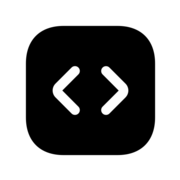Product Introduction
- CodeTogether is a browser-based real-time collaborative code editor enabling simultaneous coding sessions for developers, students, and teams. It operates entirely in the cloud without requiring software installations, allowing users to log in and immediately begin coding with others. The platform supports synchronized editing, debugging, and file management within a shared workspace.
- The core value lies in eliminating collaboration barriers by providing instant, zero-setup access to a full-featured coding environment with integrated communication tools. It enhances productivity through real-time synchronization of code changes, reducing version conflicts and enabling immediate feedback during pair programming or team projects.
Main Features
- CodeTogether offers real-time synchronization of code edits across all participants, ensuring every user sees changes instantly without manual refreshes or save commands. This includes live cursor positions, text updates, and file modifications across the entire workspace.
- The platform includes a complete file management system for creating, organizing, and editing files/folders, with one-click download of entire codebases as ZIP files. Users can manage project structures, delete files, and maintain version history within the collaborative environment.
- Dedicated collaboration rooms with unique IDs enable secure team sessions, featuring user presence indicators, join/leave notifications, and admin controls for managing participant access. Room creators can restrict edits or revoke access to maintain project integrity.
Problems Solved
- CodeTogether eliminates the inefficiencies of fragmented workflows in remote coding scenarios, where developers typically rely on screen-sharing tools and manual file transfers. It solves version control conflicts by ensuring all users work on the same codebase in real time.
- The platform specifically targets distributed software teams, computer science educators conducting live coding sessions, and students collaborating on group projects. Freelancers working with clients on code reviews also benefit from instant shared access.
- Typical use cases include debugging sessions where multiple developers edit different files simultaneously, instructors demonstrating code concepts to students in real time, and open-source contributors jointly reviewing pull requests.
Unique Advantages
- Unlike competitors requiring plugins or IDE integrations, CodeTogether provides a fully browser-native environment with built-in collaboration tools like group chat and collaborative drawing. It supports code execution within the editor, unlike text-only collaborative platforms.
- Innovative features include AI-powered code suggestions tailored to the active programming language, real-time collaborative sketching for architectural diagrams, and email-based OTP authentication that balances security with accessibility.
- Competitive strengths include free access to all features, support for binary files and complex project structures, and operational transformation technology that prevents data loss during concurrent edits.
Frequently Asked Questions (FAQ)
- How secure is CodeTogether for sensitive projects? All data is encrypted in transit using TLS 1.3, and rooms are accessible only via unique IDs with optional OTP verification. Users retain full ownership of their code, which is never stored on servers post-session unless explicitly saved.
- Can I use proprietary languages or custom syntax? The editor supports 50+ preconfigured languages with syntax highlighting and auto-detection, while allowing raw text mode for unsupported languages. Custom language definitions can be uploaded via JSON configurations.
- What happens if my internet connection drops? Users automatically rejoin sessions upon reconnection, with all changes preserved through conflict-free replicated data types (CRDTs). Offline work is supported via downloaded ZIPs, which can be re-uploaded to resume collaboration.
